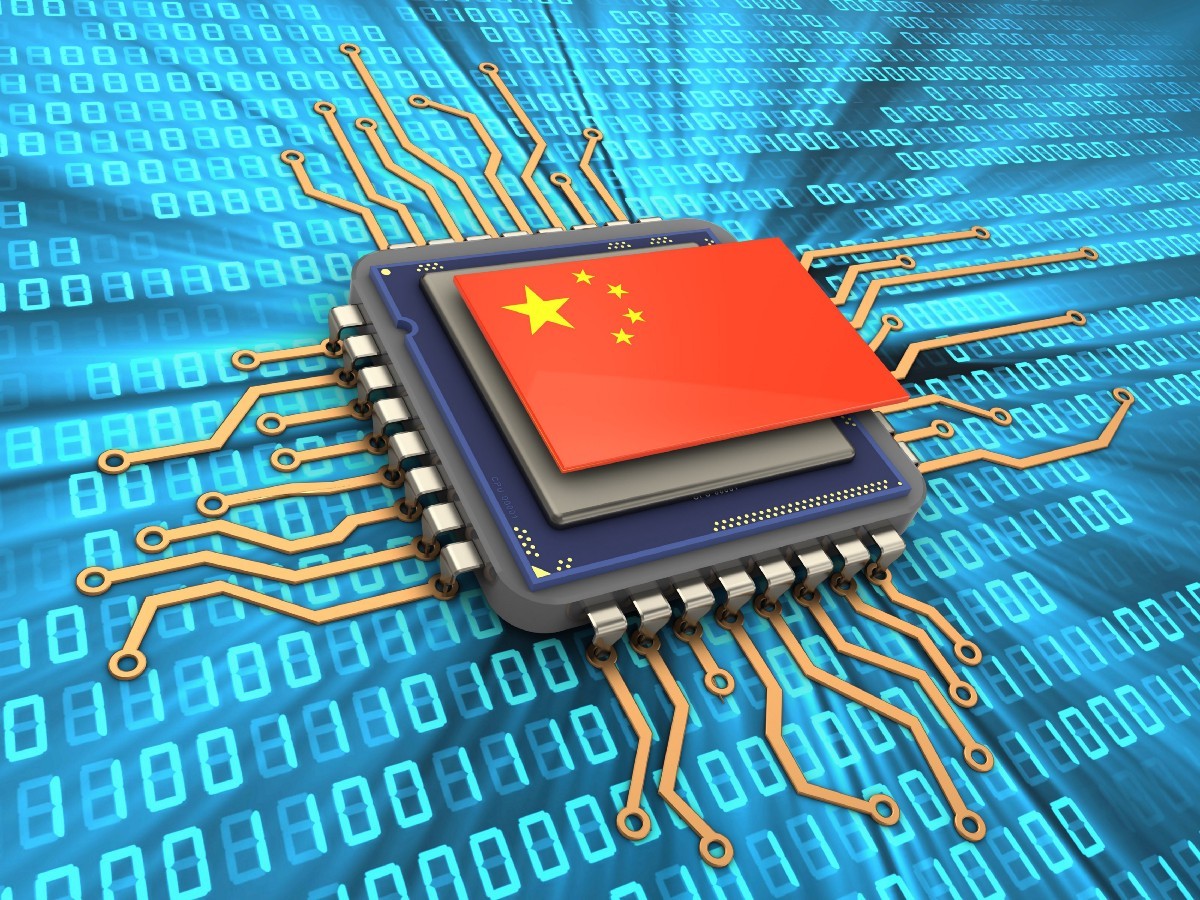Review №13 on Chinese Antitrust News from BRICS Antimonopoly Centre Expert
- Platforms will display the user's region
- Fighting "chaos" live and on short video platforms
- USCBC Report on China Data Governance Policy
- Gansu will improve the competencies of antitrust officers
- Regulation of game broadcasts
- DiDi to vote on delisting
- CNKI database and monopolistically high prices
- Planned growth of investment in big data
- Youtube has blocked the future chief of staff of Hong Kong
- Beijing measures to support business
- Regulation during the Shanghai quarantine: prices and fakes
- China will step up support for the real economy
- IP Awareness Week
- ESG agenda for listed companies
- Digitization of rural areas
- Combating the overpricing of coal
- SCMP on big tech leadership change
- WSJ: European companies do not seek Chinese stock exchanges
Platforms will display the user's region
China's major social networks, such as Douyin and Kuaishou short video platforms, Toutiao news resource, Zhihu Q&A service, and Baijiaohao information platform, among others, have announced that they will start displaying the user's location based on their IP address. The measure is introduced by the platforms not at the request of the regulator, but on their own - to combat rumors and fake publications on behalf of eyewitnesses. For users in China, the province will be displayed, while abroad, the country or region will be displayed. There is no option to disable the function on its own.
In March, the PRC Cyberspace Administration indicated that one of the areas of "cleansing" the Internet space in 2022 will be, among other things, the fight against fake news, which now appears in China a lot in the context of the conflict in Ukraine and strict lockdowns.
Source: The paper
Fighting "chaos" live and on short video platforms
The Chinese Cyberspace Administration announced the official launch of the two-month campaign announced back in March to "order chaos" in live Internet broadcasts and short videos. Its participants will be departments for regulating the Internet, the market and taxation. The goal of the campaign is to collect information about "chaotic" phenomena, analyze the reasons behind them, eliminate incorrect content and immoderate monetary rewards, as well as create innovative ways of regulation and the formation of a full-fledged regulatory system. The main task will be to combat pornographic, obscene, abnormal, fake, rude content and gambling content, as well as regulate the activities of Internet stars, including illegal profits.
Source: Weixin
USCBC Report on China Data Governance Policy
The US-China Business Council (USCBC) surveyed 30 US companies about the data management challenges they face in the Chinese market. The USCBC report says that the combination of data localization, cybersecurity and cross-border data control requirements makes China one of the most stringent economies in terms of data management. At the same time, there is regulatory ambiguity: many concepts are not defined, the rules do not specify whether they are mandatory or recommendatory, the volumes and criteria for localization and cross-border control are not established. Companies also report that they face pressure to comply with legal regulations, but no one says what practical steps need to be taken to achieve this.
Gansu will improve the competencies of antitrust officers
Market authorities at all levels in Gansu province (northwest China) will conduct in-person activities to improve the professional skills of employees involved in the fight against unfair competition. All cities and regions will offer 1-3 new or standard cases, after which 5-10 most suitable ones will be selected from the total volume. Cases must be related to the solution of pressing problems of the general public, the protection of innovations and the business environment or competition on the Internet, demonstrate breakthrough success in solving law enforcement difficulties or an innovative approach to handling cases. The presentations will be followed by in-depth discussions to help law enforcement officers better understand the new environment, trends and skills needed.
Source: SAMR
Regulation of game broadcasts
The National Radio and Television Administration and the Propaganda Department of the CPC Central Committee will strengthen the regulation of game streaming on Internet platforms. One of the goals of this measure is to protect adolescents from gambling addiction. The authorities prohibit broadcasting games that have not received a registration license, and also require platforms to strictly control the content of broadcasts and the behavior of streamers, to focus on the highest political, moral and artistic standards when choosing guests and hosts of broadcasts, to avoid persons with incorrect political views, violators of the law or public order. It is also necessary to create mechanisms to protect underage users (for example, introduce "teenage mode") and to report on broadcast settings in a timely manner.
Source: NRTA
DiDi to vote on delisting
DiDi said it will hold a shareholders' vote on May 23rd on a voluntary delisting from the New York Stock Exchange. Until the delisting issue is resolved, DiDi will not apply for an IPO on any other exchanges. On the same day, the company's financial report for the 4th quarter of 2021 was published: total revenue fell by 12.7% compared to the same period last year. Representatives of the Chinese Securities Regulatory Commission noted that the possible delisting of DiDi is a special case that does not apply to other Chinese companies on US exchanges and will not affect the efforts of Chinese and US regulators to develop appropriate audit procedures. The Commission also noted that DiDi made the above decision on its own based on market conditions and the situation in the company.
Source: Baijiahao
CNKI database and monopolistically high prices
A letter has been circulating on the network about the cancellation of the subscription of the Chinese Academy of Sciences to the largest Chinese database of scientific articles China National Knowledge Infrastructure (CNKI). The letter accused CNKI of "million-dollar subscriptions" and "harsh" renewal terms. An employee of the library of the Academy of Sciences confirmed to Red Star News that the information is reliable and now all departments are actively trying to find a replacement for the service: “There are no plans to renew the subscription this year at least.” From 2012 to 2021, at least 6 universities stopped using CNKI, however, due to exclusivity and the unique volume of materials, they were forced to renew their subscription.
CNKI is often described as a monopoly and is accused of abusing its position. In 2021, Zhao Dexin, an 89-year-old professor at Zhongnan University of Economics and Law, sued CNKI for 700 thousand yuan - the resource posted 160 of his articles without permission and left the author without a fee.
Source: Weixin
Planned growth of investment in big data
During the 14th Five-Year Plan (2021-2025), China's investment in big data centers is expected to grow by more than 20%, with cumulative investment in related industries exceeding 3 trillion yuan ($471 billion). This was stated by the Deputy Head of the Department of Development of Innovation and High Technology of the Committee for Development and Reform of China Sun Wei. According to him, this, in turn, will contribute to the growth of investments in related industries and will become a driver of digital transformation and socio-economic renewal. China recently approved the construction of eight computing hubs and a plan to build 10 cluster data centers.
Source: China daily
Youtube has blocked the future chief of staff of Hong Kong
On April 20th, Youtube blocked the account of John Lee, the former chief secretary of the Hong Kong Special Administrative Region (SAR) and now the only candidate for the post of head of the Hong Kong government. According to a notice from Google, the block is related to the sanctions policy, and the account cannot be restored. The head of the campaign headquarters, Tan Yaozong, said that he regrets the actions of Google and considers them unfounded, but the incident will not affect the campaign and the headquarters will continue to disseminate information about the election and the candidate. Chinese Foreign Ministry spokesman Wang Wenbin also openly objected to such actions: "Individual American companies deliberately become political instruments of the US government and, referring to the implementation of sanctions, interfere in the internal affairs of other countries, which is wrong and unreasonable."
In August 2020, the US Department of the Treasury took action against a number of senior Hong Kong officials, including John Lee and current SAR head Carrie Lam, for "undermining Hong Kong's autonomy and prohibiting citizens' freedom of expression or assembly." The election of a new head of administration of Hong Kong will be held on May 8.
Sources: Wenweipo, Weixin, Home.treasury
Beijing measures to support business
The Beijing Municipal Market Office has released a 21-point package of measures to support enterprises. Innovations include simplifying bureaucratic procedures (registration, changing credentials, etc.), promoting efficient, regulated and equitable business development, and creating a new digital “ecosystem” of public services. In particular, Beijing calls for a stronger “guiding” role of the regulator in the antitrust compliance of digital platforms, scrutiny of administrative decisions (so that they do not contain anti-competitive clauses), and strict suppression of anti-competitive practices, especially in key industries such as pharmaceuticals, medical equipment and education.
Source: Weixin
Regulation during the Shanghai quarantine: prices and fakes
The Shanghai Market Regulatory Authority held a meeting with the city's 12 largest online trading platforms. Under strict quarantine conditions, consumers often complain about, for example, unreasonable minimum order limits, “outward” prices for agricultural products, in connection with which the FDA has put forward the following requirements: (1) to better regulate the activities of entities on the platforms and address any violations; (2) to ensure that promotions do not violate applicable regulations (strictly check package offers and so-called "mystery boxes"); (3) increase control over couriers, that is, ensure that they do not charge extra fees and do not resell products.
As part of the fight against fake news, the Shanghai Cyberspace Administration blocked 30 communities on the WeChat platform. Communities spread false information about deaths, unaccepted product deliveries, the sale of passes for cars to move around the city, and others. Users who became the primary sources of news were fined. Also widely publicized was the ban on the ineffectiveness of the Lianghua Qingwen medicine, which is a traditional Chinese medicine widely used in China to combat the symptoms of coronavirus.
Sources: Weixin, Global Times
China will step up support for the real economy
The People's Bank of China and the State Administration of Foreign Exchange Control of the People's Republic of China announced enhanced financial support for the real sector of the economy, which will help market entities overcome difficulties, ensure freer circulation of economic flows and promote export activities. Financial institutions are recommended to expand the volume of loans and offer preferential interest rates on loans. The measures will be aimed at the financial needs of various companies, including transport and logistics companies, which may be offered a loan extension if payments are difficult for them during the pandemic. China will also increase the efficiency of cross-border use of the Chinese yuan.
Source: English.news
IP Awareness Week
China's Intellectual Property Awareness Week is held from April 20 to 26. The events are timed to coincide with the 22nd World Intellectual Property Day (April 26). This year, the Week is held under the slogan "Comprehensively pave a new path to the emergence of a power with a strong intellectual property system." Within its framework, more than 70 different events are planned throughout the country, including press conferences, seminars and the publication of representative cases. China attaches great importance to intellectual property rights, with the 2021-2035 Plan for the Establishment of a Power with a Strong IP System last year. and the National Plan for the Protection and Enforcement of Intellectual Property Rights in the 14th Five-Year Plan. The government’s working paper, submitted in March 2022, cites the successes of judicial protection of IP: these are, among other things, decisions of courts of first instance on 541 thousand cases, publication of judicial interpretations on punitive damages, joint maintenance with the State Office of Copyright Affairs and other authorities 60 major piracy cases, etc.
Source: SAMR
ESG agenda for listed companies
On April 15th, the China Securities Regulatory Commission adopted the "Working Guide for Managing Relationships Between Listed Companies and Investors for 2022". In it, information on environmental, social and corporate governance was included in the content of communications with investors for the first time. At the Boao Asia Forum 2022, Fang Xinghai, Vice Chairman of the Commission, noted that in the future, Chinese companies will have to pay more attention to the disclosure of ESG indicators if they plan to enter foreign exchanges.
Sources: The standard, STCN
Digitization of rural areas
5 departments jointly published the main tasks for the digitalization of rural areas for 2022. By the end of the year, it is planned to cover key towns and some villages with a 5G network, provide Internet access to 60% of rural areas, increase the level of digitalization of agricultural production, and the volume of retail trade in agricultural products on Internet sites should exceed 430 billion yuan (≈$66 billion) . In total, the document contains 30 tasks in 10 areas, including the creation of a "digital shield" to ensure food security, filling gaps in digital infrastructure, the development of "smart" farming, the expansion of digital social services, etc.
Source: Cac.gov
Combating the overpricing of coal
China's Development and Reform Committee plans to develop standards to help fight coal price hikes. The agency held a meeting with key coal mining companies and committed to formulate measures to stabilize prices and ensure energy security. “All the measures taken by the Committee demonstrate the hope of the authorities to make coal prices more stable, which is critical for the national economy, since coal will remain the main source of energy for China for another five to ten years,” said an expert from Xiamen University.
Source: Global Times
Media Opinion
SCMP on big tech leadership change
Over the past year, the CEOs of key technology companies have stepped down from line-management roles and engaged in long-term strategy. Among them are Pinduoduo's Colin Huang, ByteDance's Zhang Yiming, JD.com's Richard Liu, and Kuaishou's Su Hua. Previously, Jack Ma from Alibaba Group left his position.
Many see these corporate changes as the result of increased regulation of the Internet sector. However, SCMP offers an alternative view: when a business grows to a certain size, handing over to successors is a sign of maturity. After all, developing a successful start-up and managing an already established company are two different things. Finding a suitable successor is a challenging task that brings both new opportunities and new risks. Do not forget about the "risk of dependence on a key employee" - often strong-willed founders of companies do not want to transfer control and continue to develop in the vein of start-ups. So a change in leadership could be good for "corporate health."
Source: SCMP
WSJ: European companies do not seek Chinese stock exchanges
Last week, Chinese Securities Regulatory Commission Chairman Yi Huiman announced the need to develop the three-year-old Shanghai-London Stock Connect mechanism, and in February, the Commission expressed its intention to expand it to Germany, Switzerland and Shenzhen. China has even simplified financial reporting and disclosure requirements for European companies. However, according to The Wall Street Journal, during these three years, not a single person wishing to enter the Chinese stock exchanges in Europe was found. One of the main concerns is Chinese law, under which CEOs of listed companies can be held personally and criminally liable for corporate misconduct. “European companies are more interested in investing in their activities in China, for example, the construction of factories and plants. They are much less excited by the prospect of listing on a Chinese stock exchange due to the complex bureaucracy and requirements for publishing financial statements,” explains Jörg Wutke, President of the EU Chamber of Commerce in China.
Source: WSJ




